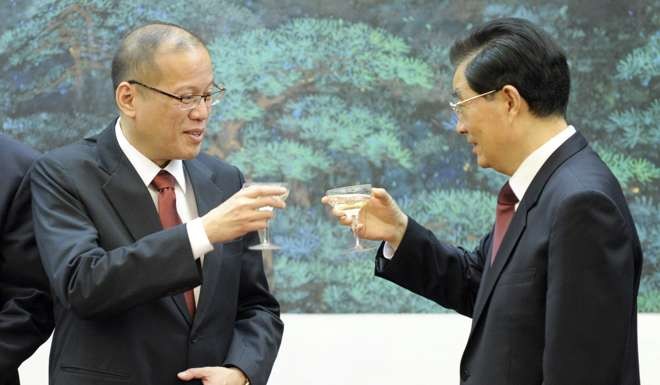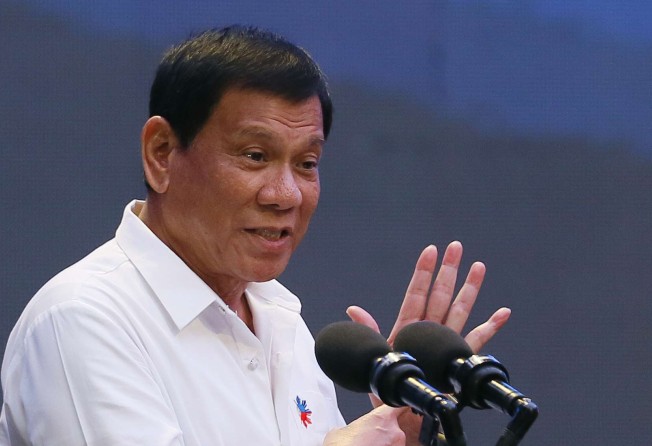
Will playing the Chinese ancestry card help Rodrigo Duterte win over Beijing?
President not the first leader from the Philippines to claim Chinese heritage to sweeten diplomatic ties, but ploy has not always proved reliable

Will Philippine President Rodrigo Duterte’s Chinese heritage help as he seeks economic deals with China in Beijing this week? He has played the issue up hard, but the Chinese may be wary of his comments if the similar claims made by his predecessor in office are any guide.
The outspoken Philippine leader landed in the Chinese capital late on Tuesday for a four-day state visit, amid strained relations between the two nations over competing claims in the South China Sea. He will meet his Chinese counterpart Xi Jinping on Thursday.
Since he took power in June, Duterte has drifted apart from the Philippines’ traditional ally the United States and is now turning to China for financial support to develop trade, tourism and infrastructure.
“It’s only China [that] can help us,” Duterte told China’s state-run Xinhua news agency ahead of the trip. He also thanked Beijing for providing the funding for a rehabilitation centre for his controversial anti-drugs campaign.
In a further attempt to smooth ties, Duterte traced his lineage back to China.
“My grandfather was Chinese,” he said, adding that there are about two million ethnic Chinese living and working in the Philippines.
“So we might be asking for your help, asking the Chinese people to help Chinese people here. They are Filipinos, but they are also Chinese,” Duterte said.
The descendent of a local political family from the Davao region, Duterte has previously said his Chinese grandfather was from Xiamen in Fujian province.
Duterte is not the first Philippine president to emphasise his or her Chinese heritage when travelling to China. His predecessor, Benigno Aquino, visited Hongjian village in Zhangzhou, Fujian province, in 2011. His mother’s great grandfather immigrated from there to the Philippines.

But having a Chinese ancestor does not necessarily guarantee a good relationship with China.
After Benigno Aquino’s departure from Hongjiang village back to Manila, his government immediately announced the decision to buy a US warship to patrol the disputed South China Sea.
It subsequently filed an arbitration case against China to an international tribunal in The Hague in 2013. Ties between the two nations fell to an all-time low.
“Trying to establish a kindred relationship is very much like a tactic used a lot in elections as a means to appeal to voters,” said Zhang Mingliang, a Southeast Asia researcher at Guangzhou’s Jinan University. “Such a connection is unreliable.”
He said other precedents and the domestic political situation in the Philippines meant Duterte’s pro-China gesture should not be read into too deeply.
“What a politician says might not reflect what he really thinks,” he said.